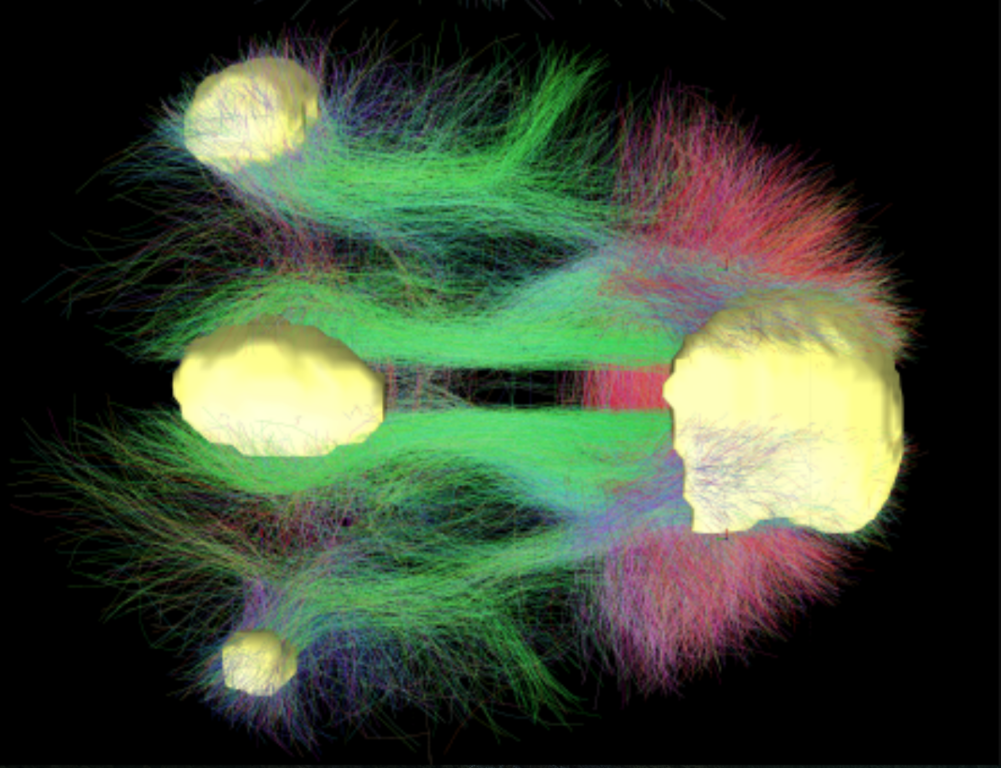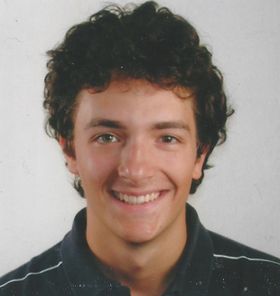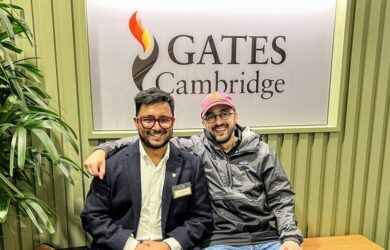
Research led by Andrea Luppi sheds new light on how consciousness works.
To understand consciousness in the brain, we need to understand what different ways of losing consciousness have in common.
Andrea Luppi
The drive to understand consciousness, and how mind arises from matter, is an ancient philosophical conundrum, popularised by philosophers such as Aristotle and Descartes. However, as our scientific understanding of the brain mechanisms of consciousness improves, it may also lead to improved clinical care for patients with disorders of consciousness, and patients who need general anaesthesia for surgery.
Thanks to advanced brain scanning technologies such as functional Magnetic Resonance Imaging (fMRI), we know that when an individual loses consciousness as a result of general anaesthesia or brain damage, their brain becomes less connected i.e. the ability of brain regions to exchange information becomes compromised. But do all these connections matter equally for consciousness?
New research published in the journal Nature Communications and based on Gates Cambridge Scholar Andrea Luppi's MPhil thesis provides some answers to this critical question. In the study, researchers used fMRI to scan the brains of healthy volunteers while they were undergoing anaesthesia with propofol, a drug widely used during surgical procedures. The team also scanned brain injured patients who had been diagnosed as being in vegetative or minimally conscious state.
The researchers found that a set of brain regions collectively known as the brain's default mode network (DMN) are especially affected by loss of consciousness, in both patients and anaesthetised volunteers. The DMN is well known for its role in creativity, imagination and thoughts about the self, as well as acting as the human brain's autopilot. Clinically, degradation of DMN activity has also been linked to Alzheimer's disease and several psychiatric conditions, highlighting its importance for cognitive function.
In this study, the neuroscientists found that when consciousness is lost, activity of the DMN becomes less diverse, more predictable, suggesting that less information may be exchanged and integrated with the rest of the brain. Crucially, these results were observed both in patients and in anaesthetised healthy volunteers, suggesting that they are not specific to either group, but rather may represent a general aspect of loss of consciousness. "To understand consciousness in the brain, we need to understand what different ways of losing consciousness have in common," says Andrea I Luppi [2019], the lead author of the study who is currently doing a PhD in Clinical Neurosciences.
The study is the result of an international collaboration between three research groups. The University of Cambridge's (UK) Division of Anaesthesia, headed by Professor David K Menon, has a research programme aiming to elucidate the neural basis of consciousness and cognition in health and disease, led by the study's senior author Dr Emmanuel A Stamatakis. Professor Adrian M Owen's group at The Brain and Mind Institute, the University of Western Ontario (Canada) seeks to understand the effects of brain injury in order to improve diagnosis and early detection and to find possible new treatments. Dr Lorina Naci's lab at the Institute for Neuroscience, Trinity College, Dublin (Ireland) researches how functional organisation of the brain supports human cognition and consciousness. This study highlights the importance of international collaborations to advance the neuroscience of consciousness.
*Picture credit: This image shows main regions of the default mode network (yellow) and connectivity between the regions colour-coded by structural traversing direction (xyz -> rgb). Source: Wikimedia Commons. Author: Andreashorn.

Andrea Luppi
- Alumni
- Italy
- 2017 MPhil Medical Science at the Department of Clinical Neurosciences
2019 PhD Clinical Neurosciences - Christ's College
I grew up in a small town halfway between Milan and the Italian Alps, but I earned my BA degree in Psychology and Philosophy from the University of Oxford, followed by graduate work in cognitive science and neuroscience. I see myself and my work as trying to bridge the gap between mind and matter: building on my MPhil work at Cambridge, my PhD in Clinical Neurosciences will apply measures from network science and information theory to study the brain across multiple states of altered consciousness – such as sleep, anaesthesia and vegetative state. Ultimately, I would like to develop a unified understanding of how consciousness is lost, and how we can promote its recovery in patients. I am also committed to communicating what we know about the brain and the mind, both across disciplines and to the wider public - especially when such knowledge is relevant for mental health. These issues are still surrounded by misunderstanding and stigma, and I believe that accessible knowledge is the best antidote. I also feel that providing this is one of my responsibilities as a scientist: as part of humanity’s quest to gain a more accurate understanding of ourselves and the world we live in, science should not be confined to the lab, and neither should our passion as scholars. I am very excited to be re-joining the community of Gates Scholars at Cambridge: I hope that this incredible experience will allow us to draw inspiration from each other’s work, passion, and perspectives.
Previous Education
University of Cambridge Clinical Neuroscience 2018
Oxford University Neuroscience 2017












